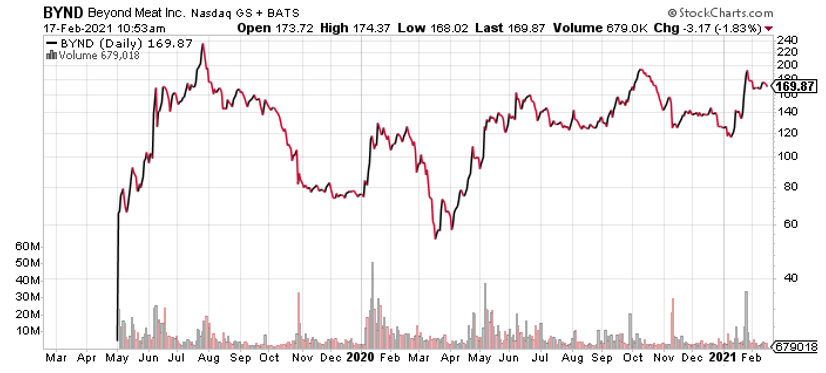Israeli company Redefine Meat developed technology to 3Dprint meat and investors are scrambling to gobble up a piece.
On Tuesday, managers at the company said they raised $29 million from a consortium of global investors to use digital technology to create steaks that look, smell and taste like the real thing.
Innovative companies figured out long ago that they could use state-of-the-art 3D printers for making prototypes and low production parts. The companies literally print the objects the same way office workers use Hewlett Packard Enterprise Co. (NYSE: HPE) inkjets to transform digital bits of information on a computer screen into a physical document. The process involves computation, some physical stock — like paper — and ink.
Ink is the tricky bit for 3D-printing food.
Engineers at Redefine are using plant-based materials, similar to nutrients eaten by cows, to “ink” printed steaks. This ink contains proteins from grains and legumes to mimic the muscle texture and fats and other acids to duplicate the juicy flavor, blood structure and color of actual meat.
While all of this might sound far-fetched and, to some, a little gross, Redefine product managers have tested the fillets extensively and won rave reviews in Israel.
The Times of Israel reported Tuesday that Best Meister decided to distribute Redefine products after the Israeli food dealer’s blind audits showed 90% of testers could not tell the difference from the real thing.
Related Post: Consumer’s Eat Up Chipotle’s Digital Revolution
Investors followed.
Venture capital firm Happiness Capital of Hong Kong, Hanaco Ventures of New York, the Losa Group of Guatemala, Prime Ventures of the Netherlands, venture capital firm K3 Ventures of Singapore and famous private investor Jeremy Coller have all committed to Redefine.
The ultimate goal for investors is to get in front of a larger trend toward plant-based meat substitutes that might grow into an $85 billion market by 2030, according to an October report in The New York Times.
Investors should savor the sizzle and get a seat at the table by buying Beyond Meat, Inc. (Nasdaq: BYND).
The company is a great option for investors to get ahead of the trend. The El Segundo, Calif.-based firm was a hot initial public offering in May 2019. Shares debuted at $25 and quickly shot up to $65.75, representing a 135% opening day gain.
Within a year, the stock reached $240 for a market capitalization of $14.8 billion.
That valuation is far beyond the norm for food businesses. Beyond Meat traded then as it does now … like a technology company. Investors bought into the big idea that Beyond is blazing a new trail in diet. The idea is to slowly moving the needle in the $11.7 trillion global food industry.
From the beginning, the company invested heavily in scale and human resources. Managers used the proceeds of the IPO to build out supply chains, and Sanjay Shah, an Amazon.com, Inc. (Nasdaq: AMZN) logistics veteran, joined Beyond in September 2019 as chief operating officer. Within a year, he had distribution deals in place with Walmart Inc. (NYSE: WMT), Target Corp. (NYSE: TGT) and major grocery store chains in Canada and Europe.
Beyond executives also began courting the quick service restaurant industry. Firms like Carl’s Jr., Del Taco Restaurants, Inc. (Nasdaq: TACO) and Dunkin’ Donuts will showcase Beyond products. And in January, the company announced an agreement with Pepsico, Inc. (Nasdaq: PEP) to jointly develop plant-based proteins for snacks and beverages.
Today, company managers say Beyond Meat products are available in 112,000 grocery stores, restaurants, hotels and universities.
It’s going to be a total win for Beyond Meat, and the process of what Redefine Meat has accomplished makes sense. A cow is largely just a machine that turns grass into meat through gastronomic chemistry. Beyond just bypasses the middleman.
Following third-quarter financial results last November, CEO Ethan Brown refused to withdraw previous aggressive expansion plans. He also noted that sales growth accelerated 63% year-over-year despite the pandemic. Sales velocity, a food business metric that measures sales across distribution points, was 3.5 times higher than the industry average.
This is significant because sales velocity normally declines as businesses add distribution points.
Related Post: Quarantine Radically Changes Business Behavior
Beyond Meat is the category killer in plant-based proteins, the fastest growing part of the food services ecosystem.
This space will only grow as innovative firms like Redefined Meat make headlines with printed steaks and other meat-like products.
Beyond shares trade at 27.3 times sales and 933 times forward earnings, although profit is irrelevant at this stage of the growth cycle. Based on sales growth alone, the stock should trade back into the middle $200s, a gain of about 44% from current prices near $170.
Growth investors should consider buying Beyond shares into any weakness.
Best wishes,
Jon D. Markman


